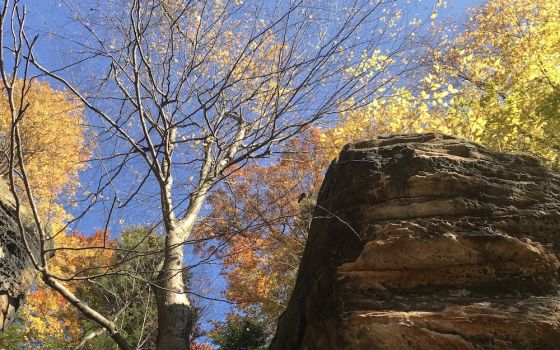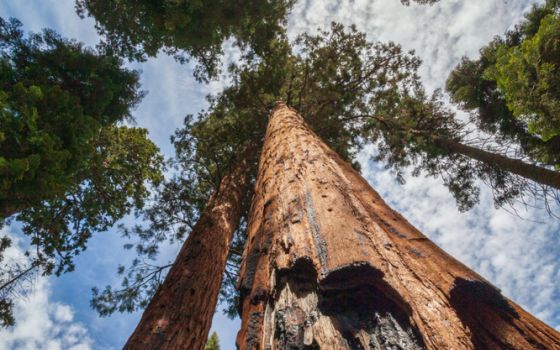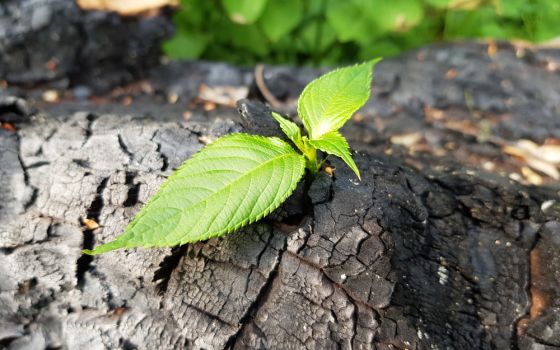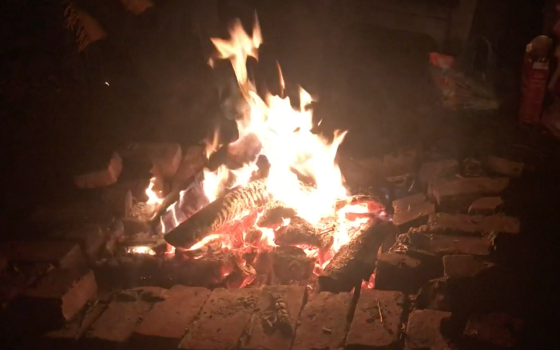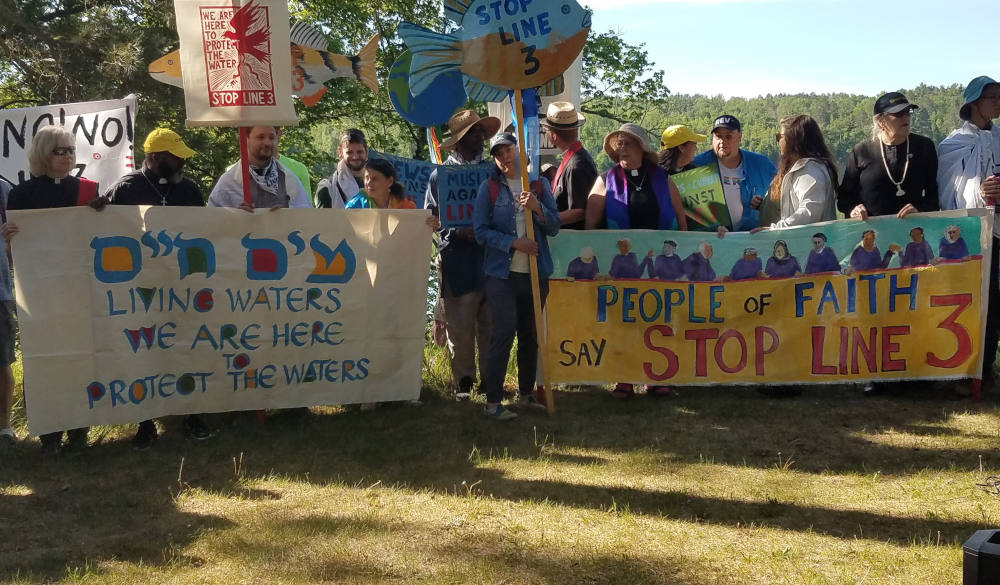
A multi-faith delegation prays before a march and rally opposing the Enbridge Line 3 pipeline near the Mississippi headwaters in northern Minnesota in early June. (Marianne Comfort)
PAUSE
READ
[Today's reflection comes from Marianne Comfort, a justice coordinator with the Sisters of Mercy of the Americas.]
Dusk was falling on Fish Hook Lake in northern Minnesota on a Saturday evening. Indigenous activist Winona LaDuke waded into the water to offer a prayer. One by one, others stepped forward to give praise to creation or to the creator in their Buddhist, Hindu, Muslim and Christian traditions. And then, once we all had spotted the first three stars visible in the darkening sky, we marked the end of the Jewish Sabbath with the lighting of a candle and a Hebrew hymn.
We had been called to northern Minnesota by Indigenous women protecting a vast network of waterways and forests and the cultivation of their sacred wild rice from construction of the Line 3 pipeline. The Canadian company Enbridge wants to abandon a decaying pipeline and complete a new route to carry extra-dirty tar sands oil from Alberta, Canada, to Lake Superior in Wisconsin.
The women and their allies have attended hearings and pleaded their case to state officials and in the courts, determined not to suffer yet another loss after centuries of injustices and the grieving that follows. Now they are pressing President Biden and the Army Corps of Engineers to revoke the permit issued under the previous administration and order a more thorough review of the project.
More than 2,000 people answered the call and traveled to this region where the Mississippi River flows as just a trickle out of Lake Itasca. Among them were more than 300 of us organized through Minnesota Interfaith Power & Light, GreenFaith and other faith groups.
Press reports focused on the more than 250 people who chained themselves to company equipment, blocked a construction road and set up water protection camps over the three days we were there in early June.
But organizers made clear that people of faith were invited mostly to pray and to learn — and then to return home to educate and mobilize others for action.
We learned about treaties that grant the Anishinaabe people the right to fish, hunt and cultivate their sacred wild rice in this area. But what good are these rights if we can't eat the fish or rice because they become contaminated from pipeline leaks, we were asked.
We were encouraged to seek connections between the struggle against the pipeline, the epidemic of missing and murdered women in Indian Country, and discoveries of the remains of Indigenous children at the sites of former boarding schools in Canada.
And all the while, we bathed in the beauty of this region dotted with forests and waterways. Standing on one of the rocks that create a short walkway across the Mississippi at its source, I could visualize this stream growing into the mighty river we had passed multiple times on our drive from Minneapolis. It didn't take much imagination to also consider how oil would also be carried along this route with any pipeline spill or leak.
This Season of Creation, may we all anticipate the grief we might feel at the loss of a treasured body of water or patch of land and all the life it holds. And then let that spur us to protective action.
REFLECT
As you enter into some time of quiet, call to mind a favorite place where you most feel God's presence in creation.
Can you imagine what threats this favorite place might face from construction projects, drought or flooding, loss of biodiversity or climate change?
How do you feel as you consider the potential loss of this special place? Or of what makes it special to you?
Is there something you feel called to do to protect this special place from these threats?
ACT
Research your local watershed conservation group in your area to learn more about how you can get involved, or research how to support the work of current local Indigenous leaders in your area.
[Marianne Comfort is justice coordinator for Earth, anti-racism and women for the Sisters of Mercy of the Americas. She serves on the board of the Laudato Si Movement (formerly the Global Catholic Climate Movement) and steering committee of the Catholic Climate Covenant.]
pause | read | reflect | act
You can sign up here to receive these reflections every Monday, Wednesday and Friday throughout the Season of Creation, Sept. 1-Oct. 4.
Advertisement





